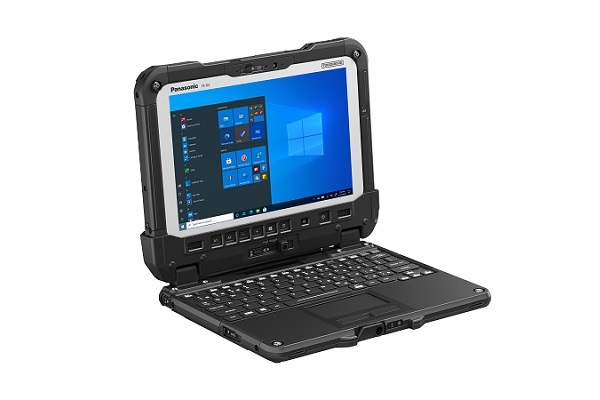Panasonic launches new TOUGHBOOK G2

Panasonic has launched its TOUGHBOOK G2 in the Australian market, the latest addition in the company’s popular and ever-evolving rugged device range.
Delivering greater flexibility, innovation and security than ever before, the TOUGHBOOK G2 is designed for the next generation mobile workforce.
Leveraging a ‘customer-first’ approach, the rugged Windows device is built in direct response to the complex needs of any agile workforce. Boasting a ground-breaking modular design, the TOUGHBOOK G2 offers three expansion areas and a number of different combinations to ensure users receive the ultimate customised computing experience.
Drawing on 25 years of innovation, the TOUGHBOOK G2 showcases the benefits of Panasonic’s latest technology while still maintaining the market-leading quality which has allowed TOUGHBOOK to be the most popular rugged device brand, globally.
Panadonic says that the TOUGHBOOK G2 presents the ‘gold-standard’ of commercial device security, ensuring all data is stored with multiple layers of protection. The TOUGHBOOK G2 includes new advanced features which makes it compliant with a new class of secure PCs developed by Microsoft in collaboration with many partners.
“Increasingly, mobile workforces demand rugged devices that can withstand a unique set of challenges, operate in the harshest environmental conditions and deliver a greater level of safety and assurance. The TOUGHBOOK G2 demonstrates the ongoing evolution of our rugged device portfolio, combining more than 25 years of heritage, innovation, and experience to support new ways of work – which are more agile and disruptive,” Panasonic System Solutions Oceania senior product marketing manager – mobile solutions Ranjit Sojoni says.
“Panasonic is proud to continue offering our TOUGHBOOK solution to support a range of industries – from the critical work of emergency services currently protecting Australians on the frontline of a pandemic, to those working in field services, defence, mining and supply chain and logistics.”
